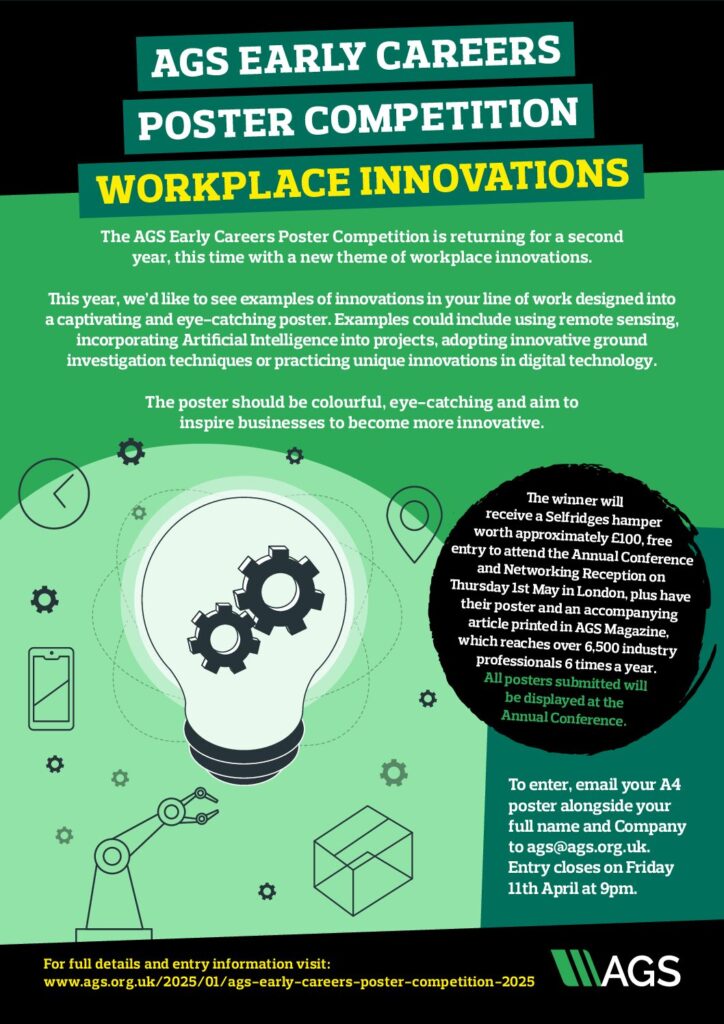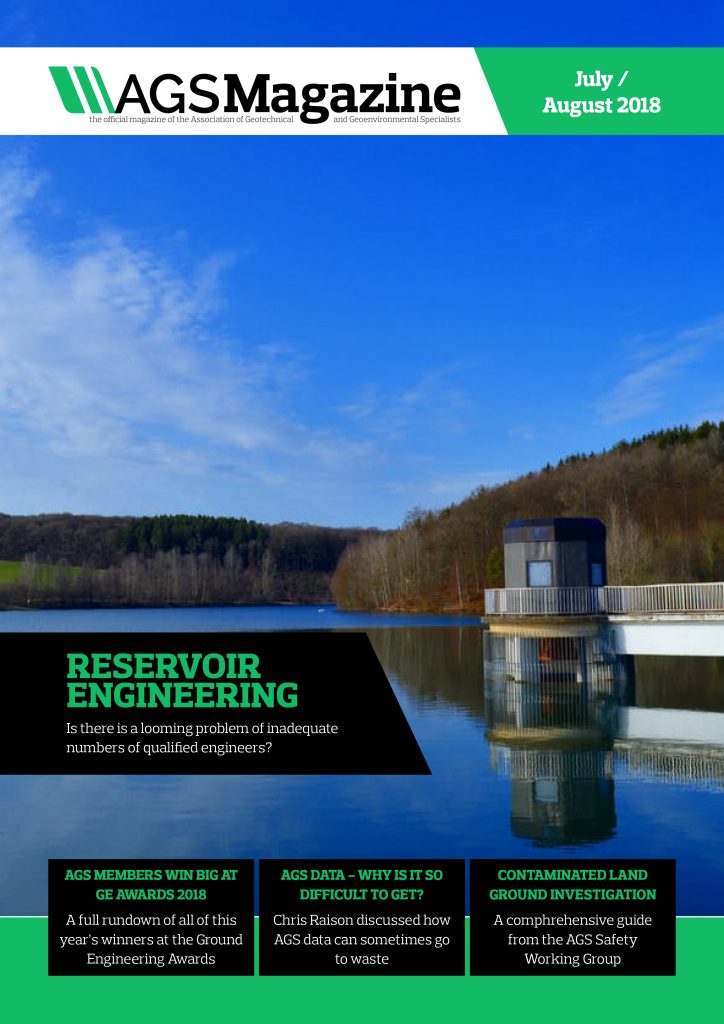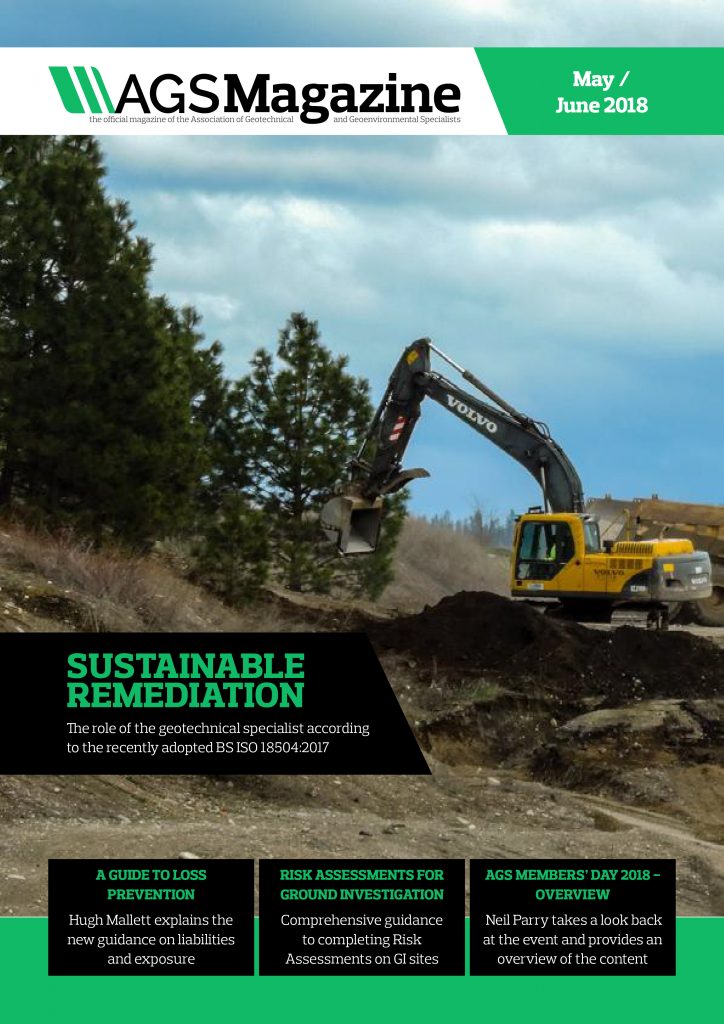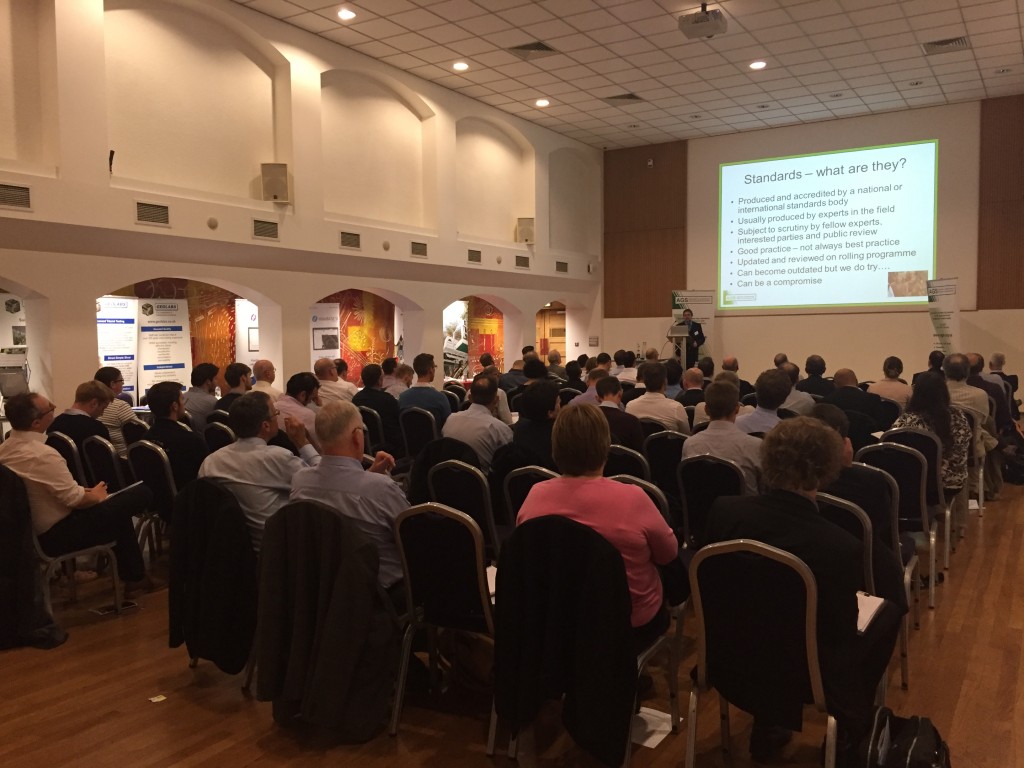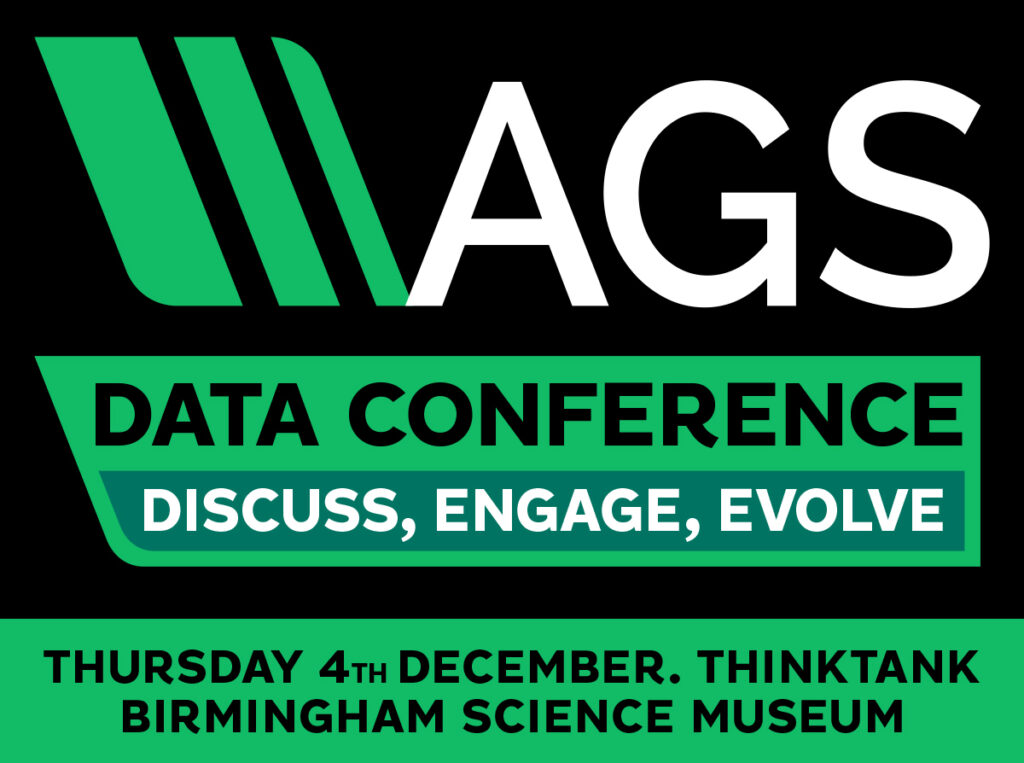
The AGS is pleased to announce details of the AGS Data Conference – Discuss, Engage, Evolve. This full-day, CPD event is taking place on Thursday 4th December at ThinkTank Birmingham Science Museum.
Sponsoring the AGS Data Conference offers a unique opportunity to position your company at the forefront of innovation in a rapidly evolving field. It’s a unique opportunity to showcase your company’s expertise, connect with industry leaders, and demonstrate your commitment to advancing data-driven solutions that improve safety, efficiency, and sustainability in ground engineering.
Please see details below of our available sponsorship packages for both Members and non-Members of the Association who wish to have a presence at this highly targeted conference. All listed rates exclude VAT.
CATERING SPONSOR* (AGS Member Rate: £1600 / Non-Member Rate: £2100)
- Company logo featured on catering tables
- Two/three page company/individual Q&A in AGS Magazine (over 7,550 subscribers)**
- Full page advert in AGS Magazine (worth £400)**
- Entry for three delegates into the conference
- A designated area to exhibit company initiatives, research and software during the conference. This exhibition space can also be used to showcase marketing materials, company literature, research and banners
- Company logo on the event presentation holding slide
- Company logo, overview and URL on the event programme
- Company overview and URL on the AGS website
- Company logo featured in promotional emails
- Three company posts on the AGS’ LinkedIn page (over 8,950 followers)
- Company inclusion in pre-event and post-event articles in AGS Magazine (over 7,550 subscribers)
*one package available
**terms and conditions apply
EMERALD SPONSOR (AGS Member Rate: £1350/ Non-Member Rate: £1755)
- Full page advert in AGS Magazine (worth £400, over 7550 subscribers)**
- A designated area to exhibit company initiatives, research and software during the conference. This exhibition space can also be used to showcase marketing materials, company literature, research and banners
- Entry for three delegates into the conference
- Company logo on the event presentation holding slide
- Company logo, overview and URL on the event programme
- Company overview and URL on the AGS website
- Company logo featured in promotional emails
- Two company posts on the AGS’ LinkedIn page (over 8,950 followers)
- Company inclusion in pre-event and post-event articles in AGS Magazine (over 7,550 subscribers)
GOLD SPONSOR – (AGS Member Rate: £1200/ Non-Member Rate: £1560)
- A designated area to exhibit company initiatives, research and software during the conference. This exhibition space can also be used to showcase marketing materials, company literature and banners
- Entry for two delegates into the conference
- 1/4-page advert in AGS Magazine (worth £160, over 7,550 subscribers)
- Company logo on the event presentation holding slide
- Company logo, overview and URL on the event programme
- Company overview and URL on the AGS website
- Company logo featured in promotional emails
- One company posts on the AGS’ LinkedIn page (over 8,950 followers)
- Company inclusion in pre-event and post-event articles in AGS Magazine (over 7,550 subscribers)
ASSOCIATE SPONSOR (AGS Member Rate: £600 Non-Member Rate: £840)
- Entry for one delegate into the conference
- Company directory in AGS magazine (worth £50, over 7,550 subscribers)
- Company logo on the event presentation holding slide
- Company logo, overview and URL on the event programme
- Company overview and URL on the AGS website
- Company logo featured in promotional emails
- One company post on the AGS’ LinkedIn page (over 8,950 followers)
- Company inclusion in pre-event and post-event articles in AGS Magazine (over 7,550 subscribers)
If you’d like to confirm your support, please contact Caroline Kratz on ags@ags.org.uk. Please note that packages are limited and are offered on a first come, first served basis.
